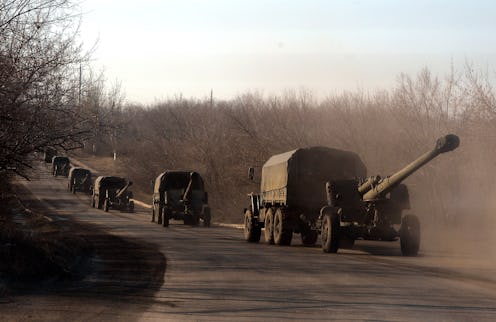News
The Afghan Taliban's Leader Was Killed — REPORT
On Monday, President Obama confirmed that a U.S. drone strike killed the leader of the Afghan Taliban, Mullah Akhtar Muhammad Mansour. Afghan officials reported his death Sunday, but the U.S. hadn't verified it until the White House released a statement while the president was in Vietnam, saying the U.S. had "removed the leader of an organization that has continued to plot against and unleash attacks on American and coalition forces," calling Mansour's death "an important milestone in our longstanding effort to bring peace and prosperity to Afghanistan." He was taken down by an airstrike in southwest Pakistan that hit his car Saturday, Afghanistan Chief Executive Abdullah Abdullah said.
In a news conference from Vietnam, President Obama said Mansour's death wasn't a shift in America's mission in the country, but the leader was a threat to U.S. troops. "We are not re-entering the day-to-day combat operations that are currently being conducted by Afghanistan forces," he explained. "He is an individual who as head of the Taliban was specifically targeting U.S. personnel and troops inside of Afghanistan who are there as part of the mission I have set to maintain a counterterrorism platform and provide assistance."
The drone strike sent a clear message that people targeting Americans "will have no safe haven," according to the White House's statement.
Mansour took over the head of the Afghan Taliban after its previous leader, Mullah Mohammed Omar, died in Pakistan in 2013. Mansour was one of the first Taliban officials linked to drug trafficking, then serving as the Taliban's tax collector for the drug trade, "governor" of Kandahar in southern Afghanistan, the Taliban's minister of civil aviation and transportation, and a recruiter for the battle against the Afghan government. He has no clear successor, and the Taliban leadership gathered in Quetta, Pakistan after his death to name a new leader, but didn't come to a conclusion, CNN reports.
Pakistan wasn't aware of the drone strike before it took place, and such airstrikes are considered a violation of the nation's sovereignty. "While further investigations are being carried out, Pakistan wishes to once again state that the drone attack was a violation of its sovereignty, an issue which has been raised with the United States in the past as well," read a statement from Pakistan's Ministry of Foreign Affairs. However, The Guardian reports that Pakistan could have agreed to the strike beforehand, but refuses to admit it publicly to avoid violent attacks by Afghan militants.
